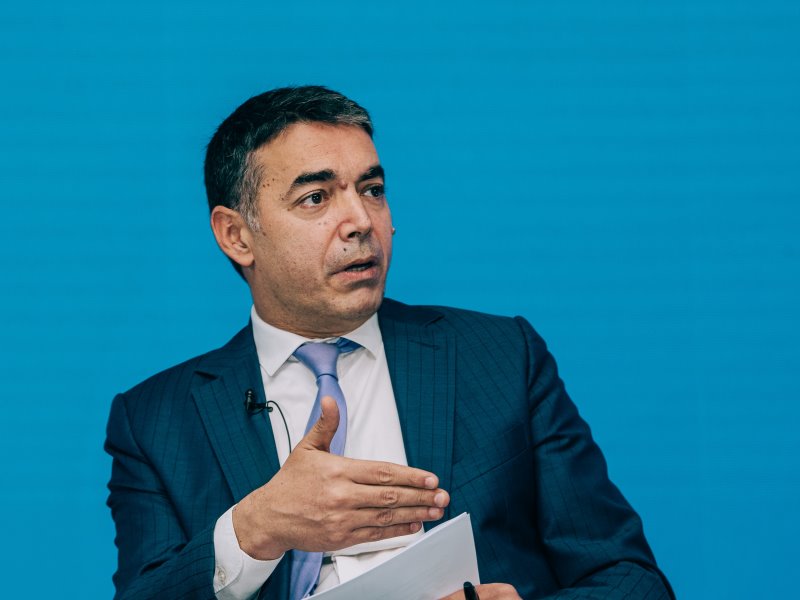The Deputy Prime Minister for European Affairs Nikola Dimitrov took part at today’s panel “The Berlin Process – What comes next” within the Belgrade Security Forum. The discussion centred around the objectives of the contribution by the Berlin Process in terms of maintaining the pace of the region’s reform process pertaining to European integration, but also in more specific areas of regional cooperation, aiming to develop future modalities for its optimisation, in light of events at the dynamic European stage.
Deputy Prime Minister Dimitrov said that the Berlin Process was not introduced as a separate process; instead it is closely connected to strengthening the EU enlargement process with the countries in the region, but also from a political aspect – considering the strong German leadership, and in practice as well – in view of the areas and regional initiatives that were developed in partnership with the European Commission and the member-states.
Dimitrov said: “The ultimate vision of the Berlin Process is to contribute towards a peaceful, stable and prosperous future for the region, and it cannot be fully realised if the European perspective is overlooked. The scope and depth of the achieved results is reflected not only at high level political summits, but also in specific, tangible results that benefit the people – for example ending of roaming charges in the region and youth cooperation through RYCO.
The Berlin Process has restored the EU’s focus on the region; nonetheless, the issue regarding EU’s credibility is still palpable, with public confidence decreasing along with the hope that a European future is attainable. In the future, the region must show that the enlargement will bring an added value to the Union and will bring solutions instead of problems, and in turn the EU must send a message that choosing European oriented policies will result in a win”.
Dimitrov emphasised that regional cooperation in the future will be upgraded with the priorities and areas promoted by the Berlin Process, but only as a tool to drive the accession process, as opposed to an alternative, because the European vision cannot be replaced.
Dimitrov said: “In order to achieve a successful regional partnership and cooperation, it should, above all be regional in an inclusive sense and open for all. Last year, North Macedonia and Bulgaria jointly presided over the Berlin Process, with the intention to emphasise these elements and strengthen the accountability in terms of the results. The economic connection is important and initiatives like “Open Balkans” only add to the objectives of the Berlin Process, and a common regional market is the next opportunity for the Process to deliver concrete results. However, all this isn’t and cannot be an alternative to the region’s European integration.”
The panel was also attended by MEP Viola von Cramon-Taubadel, as well as representatives of the think tank sector in Europe: Christian Hagemann as Deputy Director of the Munich-based Southeast Europe Association (SOG), Igor Bandovic of the Belgrade Center for Security Policy and Zoran Necev from the Institute for Democracy - Skopje, and the panel was moderated by Max Brandl, director of the Friedrich Ebert Foundation in Belgrade.
The participants agreed that the European Union must channel its commitment and support for the region through a specific outcome and drive forward the enlargement process, particularly with regard to North Macedonia, considering all the results the country has achieved to meet the accession conditions.

